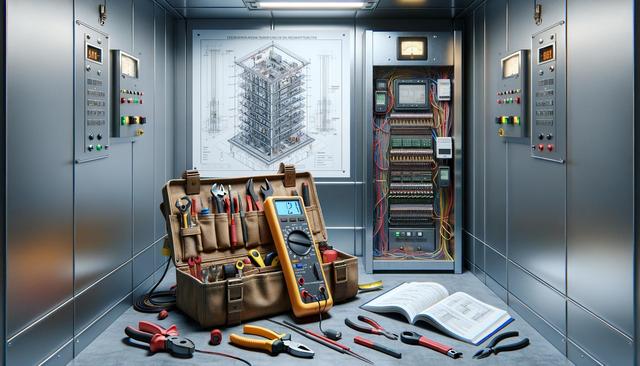Understanding the Role of an Elevator Mechanic
Before diving into the training specifics, it’s essential to understand what an elevator repair technician does. These professionals are responsible for the installation, maintenance, and repair of elevators, escalators, moving walkways, and other mechanical lift systems. Working in this field requires a deep understanding of mechanical systems, electrical circuitry, and safety protocols. Technicians work in commercial buildings, residential complexes, hospitals, and industrial sites, where lift systems play a critical role in accessibility and transportation.
In addition to mechanical aptitude, elevator mechanics need strong problem-solving skills and attention to detail. Diagnosing faults and determining the most efficient repair solution involves technical expertise as well as communication with building managers and sometimes engineers. A training program prepares individuals for these scenarios by blending theoretical knowledge with hands-on experience.
Core Subjects Covered in Elevator Technician Training
Elevator mechanic training programs are designed to be comprehensive and practical. These programs often span several months or years, depending on the format, and typically include both classroom instruction and on-the-job training. Some of the primary subjects covered include:
- Electrical systems and wiring diagrams
- Hydraulic and traction lift systems
- Mechanical components and motor functions
- Reading and interpreting blueprints
- Safety standards and regulatory compliance
Understanding these topics is crucial for performing accurate diagnostics and ensuring all systems meet legal and operational standards. The training ensures that each technician is versed in both traditional elevator technologies and newer, more advanced systems that use digital controls and smart sensors.
Hands-On Training and Apprenticeships
One of the defining features of elevator repair technician training is the focus on practical, hands-on experience. Most training programs integrate apprenticeship opportunities where students work under the supervision of experienced professionals. These apprenticeships are vital for gaining confidence and real-world insight into the challenges and responsibilities of the job.
During this phase, trainees will:
- Assist in installing new elevator systems
- Perform routine maintenance checks
- Identify and repair electrical and mechanical faults
- Practice emergency response procedures in case of elevator malfunctions
This part of the program allows trainees to apply what they’ve learned in the classroom to real-life scenarios, making them better prepared for independent work upon graduation.
Certification and Licensing Requirements
In many regions, elevator technicians are required to obtain certification or a license to practice professionally. Training programs often prepare students to meet these requirements by aligning their curriculum with local and national standards. Certification exams typically cover technical knowledge, safety regulations, and troubleshooting procedures. Licensing may also require a certain number of hours spent in supervised work or an apprenticeship.
Graduates may pursue certifications from relevant regulatory bodies or associations. Holding a recognized credential can improve job prospects and demonstrate a commitment to industry standards. Technicians who are certified are more likely to be trusted with high-responsibility tasks and may qualify for advanced roles such as inspector or supervisor.
Career Outlook and Continuing Education
The demand for skilled elevator repair technicians remains strong due to the increasing number of high-rise buildings and the need for reliable vertical transportation. As technology evolves, there is a growing emphasis on sustainable systems, digital monitoring, and integrated smart building solutions—all of which require specialized knowledge. This makes continuing education a valuable part of a technician’s career.
Many professionals choose to take additional courses in areas such as:
- Advanced electronics and automation
- Green building technologies
- Computerized diagnostic tools
- Project management and leadership
By staying up to date with the latest developments, elevator technicians can adapt to changing industry needs and broaden their career options. Whether entering the field or looking to advance, ongoing training ensures long-term success and safety in this highly technical profession.
Conclusion: Preparing for a Rewarding Technical Career
Training to become an elevator repair technician offers a structured path into a specialized and essential trade. Through a combination of classroom learning, hands-on practice, and real-world experience, aspiring technicians gain the skills needed to ensure the safety and functionality of lift systems in various environments. For those interested in mechanics, problem-solving, and working in dynamic settings, this career path provides both stability and opportunity for growth. With proper training and certification, elevator mechanics can look forward to a career that is both challenging and rewarding.




Leave a Reply